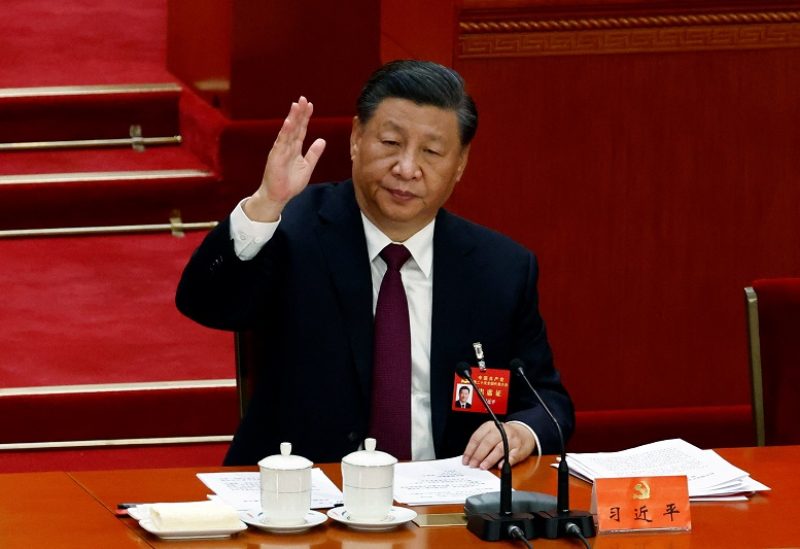
Chinese President Xi Jinping votes during the closing ceremony of the 20th National Congress of the Communist Party of China, at the Great Hall of the People in Beijing, China October 22, 2022. REUTERS/Tingshu Wang
In October, Xi Jinping won an unprecedented third term as president, becoming China’s most powerful leader since Mao Zedong. He was supported by a Politburo Standing Committee that was full of allies and lacked a potential rival.
It was a rare high point for Xi in 2022, a turbulent year marked by massive street protests, the abrupt abandonment of his zero-COVID policy, and a coronavirus outbreak that spread throughout the nation with the largest population.
While frustration over zero-COVID and its devastating impact on the second-largest economy did little to disrupt Xi’s march towards five more years as general secretary of the ruling Communist Party, 2022 was a year of crises at home and abroad for the 69-year-old leader.
China’s economy is on track to grow at around 3% in 2022, far short of its official target of roughly 5.5%, as the country’s outlier COVID curbs stifled consumption and disrupted supply chains, while crisis in its massive property sector continued to weigh.
Beijing’s relations with the West deteriorated, worsened by Xi’s “no limits” partnership with Moscow struck just ahead of Russia’s invasion of Ukraine in February, as well as growing tensions over U.S.-backed Taiwan, which China considers part of its territory.
Xi travelled abroad for the first since the start of the pandemic, meeting with Russian President Vladimir Putin in September. In November, he met U.S. President Joe Biden at the G20 in Indonesia as both sides sought to steady relations.
Later that month, protesters in cities across China took to the streets in opposition to nearly three years of stifling COVID-19 controls that were a signature Xi policy. Such widespread protests were the first in China since 1989.
In an unexpectedly sudden reversal, China in early December dropped most of its COVID controls as cases in cities including Beijing surged, despite warnings from global experts over insufficient vaccine coverage and a health system unprepared to cope with an explosion of infections.